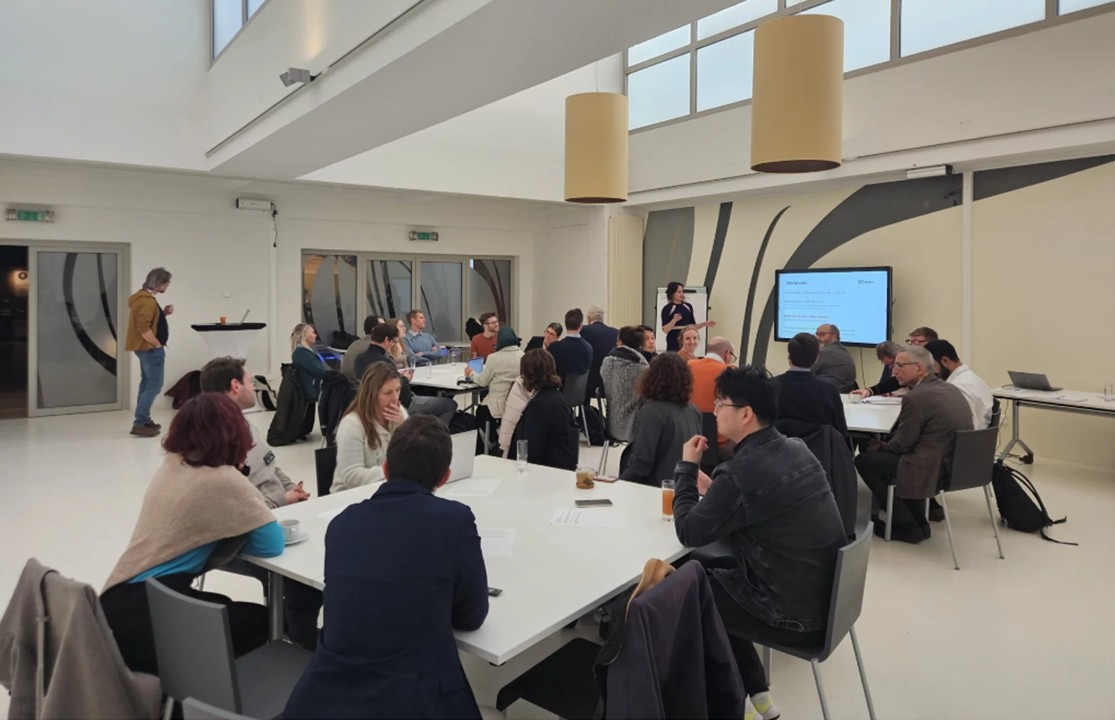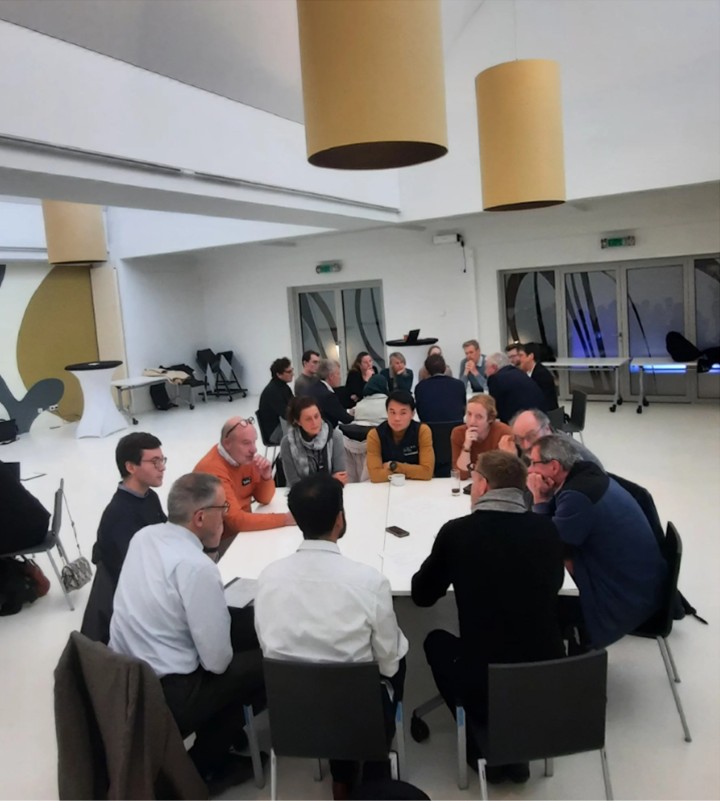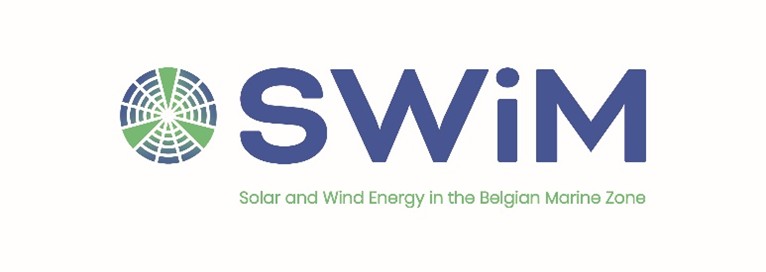The SWiM (Solar and Wind in the Belgian Marine Zone) project, funded by the Belgian Energy Transition Funds, brings together six partners from industry and science. They conduct research into the combination of marine technologies in Belgium’s Exclusive Economic Zone, in particular to integrate Offshore Floating Photovoltaics into wind farms in an ecologically sustainable way. On 6 March 2025, a first workshop took place at the Institute of Natural Sciences (RBINS), Brussels, to discuss some crucial issues.

Organised by Blue Cluster and RBINS, the workshop brought together almost 40 policymakers, industry experts, and researchers to discuss key challenges and opportunities in regulation, tendering and environmental permit criteria (https://www.swimproject.be/results-workshop-01/).
The discussions highlighted the urgent need for regulatory frameworks and standardisation for multi-use and, more specifically, offshore solar energy in wind to create a level playing field with wind energy and reach the energy targets and sustainability goals.
Unlocking the potential of OPV in offshore wind farms
A key point of discussion was whether Offshore Photovoltaics (OPV) should be integrated into offshore wind tenders or developed independently. While integration could lead to optimised infrastructure use, it also raised concerns about added costs and operational complexity.
Crucial factors in the tendering process include financial viability, environmental impact assessments, grid integration, and circular design principles. To enhance economic feasibility, participants explored policy tools such as subsidies and innovative financing mechanisms.
Flexible tendering approaches, offering shorter initial project durations with options for extension, were highlighted as a way to accelerate innovation. Additionally, well-defined permitting procedures and legal frameworks are essential to clarify ownership and facilitate the development of multi-use zones.
Environmental considerations
Environmental considerations featured prominently in the discussions. Nature-inclusive design was highlighted as a strategy to support marine biodiversity, though potential ecological risks were also acknowledged. The current lack of data on the cumulative environmental impacts of OPV and offshore wind underscores the need for further research and pilot projects.
Emphasis was placed on circularity and sustainable decommissioning practices to mitigate long-term environmental effects. Co-using cable infrastructure with wind farms was proposed as a way to optimize spatial efficiency and reduce ecological footprints.
To drive sustainability, tender criteria should prioritize projects that align with environmental objectives and integrate seamlessly with existing offshore infrastructure. Notably, components such as cables and transformers often outlast wind turbines, presenting opportunities for reuse or repowering in combination with OPV technologies.

Next steps
The workshop underlined the importance of a long-term vision, well-defined policy frameworks, and collaboration among governments, industry, and research institutions. Demonstration projects will be key in further assessing the technological and ecological viability of OPV. Future SWiM workshops will continue to address implementation strategies and scaling opportunities.
The next SWiM workshop will take place on October 20, 2025 at KULeuven and will focus on 1) remaining challenges in OPV and additional uses in existing farms to reach targets EU energy strategies, 2) expansion towards other energy-related uses, such as wave and tidal energy, and 3) integration of positive environmental impacts in permitting and tendering procedures.

SWiM is a two years project in which six partners are joining forces: KU Leuven/EnergyVille (lead partner), Engie Laborelec, Blue Cluster, Imec, UHasselt and RBINS. RBINS, represented by Arthur Capet, Pauline Denis, Geneviève Lacroix (Ecosystem Modelling – ECOMOD), Ee Zin Ong and Jan Vanaverbeke (Marine Ecology and Management – MARECO), is responsible for the work package on environmental aspects.
